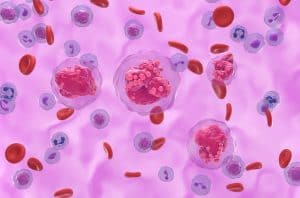
Alexion hits out at NICE ruling on Strensiq
pharmafile | February 8, 2017 | News story | Research and Development, Sales and Marketing | Alexion, NICE, Strensiq
NICE has again drawn the ire of a company over its recommendation of its drug, this time round it’s Alexion with its drug Strensiq (asfotase alfa). NICE confirmed its earlier draft recommendation that the drug should only be made available to a limited pool of individuals.
The restricted recommendation covers those suffering from hypophosphatasia in people with perinatal and infantile-onset disease, which also includes a proposed discount on the cost and an annual cap on the cost per patient. However, the guidance does not include treatment for those in children and adults with juvenile-onset disease.
The decision was reached, according to NICE’s release, because “the cost of asfotase alfa is very high, and there are significant uncertainties about its long-term benefits, who would benefit the most from treatment, and the number of people in this patient group who might be eligible for treatment.”
This riled Alexion, who released its own statement in rebuttal of the decision: “In making its decision, NICE completely disregarded the proposed consensus managed access agreement (MAA) for children, juveniles and adults with paediatric-onset disease, which was developed by physician thought-leaders, patient groups, and NHS England, with input from Alexion Medical, and that identified those patients who experience the most disabling symptoms and are expected to derive most benefit from therapy”.
The strongly worded response can be explained by the length of time it took for NICE to review the decision, a process which lasted a year. The other side to the argument is the cost of the medicine, which is one of the more expensive drugs on the market – costing £366,000 per year, per patient. Of course, NICE had already negotiated an unrevealed discount but it would still remain an expensive drug.
Hypophosphatasia is a genetic disorder that is identified by abnormal development of bones and teeth. It is thought to effect one in 300,000 people in Europe. In England, the estimates are that there will be one to seven people diagnosed with perinatal and infantile-onset hypophosphatasia each year.
Ben Hargreaves
Related Content

NICE recommends migraine treatment for NHS use
The National Institute for Health and Care Excellence (NICE) has shared draft guidance recommending AbbVie’s …

GSK’s Jemperli recommended by NICE for endometrial cancer treatment
GSK has announced that the National Institute for Health and Care Excellence (NICE) has recommended …

NICE recommends SC treatment of AbbVie’s Tepkinly for patients with DLBCL
AbbVie has announced that the National Institute for Health and Care Excellence (NICE) has recommended …








